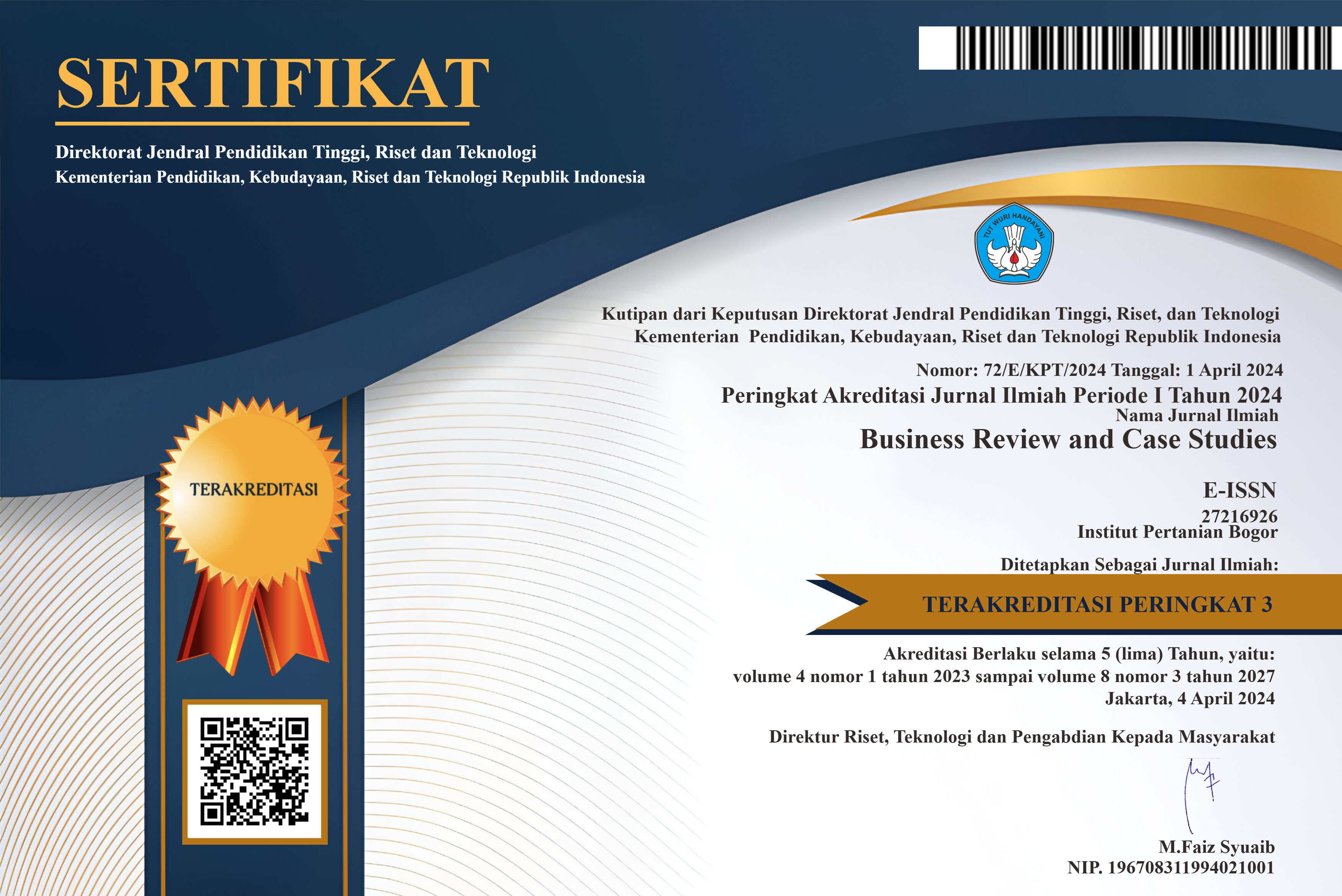Factors Affecting The Profitability of Plantation Commodity Business at PT XYZ
DOI:
https://doi.org/10.17358/brcs.5.1.1Abstract
PT XYZ was a company engaged as a marketing agent for plantation commodities. The company added new business lines, expanding from marketing agents to traders and retailers. However, the addition of business lines did not increase the company's profitability. A research was conducted to analyze the factors that impacted the profitability of PT XYZ. The research used financial performance analysis and statistical analysis of working capital management on profitability, and it examined the interaction with the covid-19 pandemic using multiple linear regression. The variables used in the statistical analysis were days sales outstanding (DSO), days inventory outstanding (DIO), days payable outstanding (DPO), and cash conversion cycle (CCC). The control variables included current ratio (CR), debt to equity ratio (DER), investment policy (IP), financing policy (FP), and company size (size). Additionally, there was a moderating variable, the covid-19 pandemic (dummy). The dependent variable in the study was the gross operating profit (GOP). The results showed that the working capital management of PT XYZ from the aspect of liquidity had a net working capital that posed low risk and low return. Based on the company's financial statements, PT XYZ had a relatively high cost of sales. Regarding the leverage aspect, the company's debt-to-equity ratio increased, indicating that its capital or equity could not cover its debt. The variable day's inventory outstanding (DIO) had a negative and significant effect on the profitability of PT XYZ companies on the independent variable gross operating profit (GOP).
Keywords: commodity marketing company, gross operating profit, moderation of covid-19, profitability, working capital management







.jpg)






